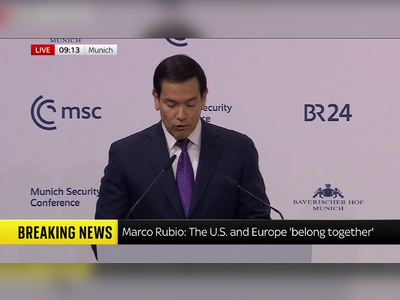
‘No reward or recognition’: why women should say no to ‘office housework’
Many of us have a never-ending list of tasks that are work-related, but not quite work: writing up minutes from meetings, assembling entries for awards, serving on committees, selecting interns, organising holiday parties, shopping for leaving gifts.
Many, if not most, working women accept it as just part of the job. But taking one for the team could be holding all women back.
A new book argues that “non-promotable work” – the kind that is important to organisational functioning, but unlikely to be rewarded or even recognised – is the invisible hurdle to gender equality in the workplace, with women’s time and energy being disproportionately expended on thankless tasks.
“It’s not that women are do-gooders, who want to help out the group,” says Lise Vesterlund, an economics professor at the University of Pittsburgh. “They’re doing it because we’re expecting them to.”
Vesterlund and three friends wrote The No Club: Putting a Stop to Women’s Dead-End Work after finding themselves overwhelmed in their own careers a decade ago. “Initially it was about getting our own work lives under control,” she says.
Over years of research they found that across the public and private sectors, and a wide range of roles, female employees were shouldering the burden of “office housework” and low-value assignments, causing them to miss out on promotions and pay increases.
“We think this is a central part of why women are not advancing at similar rates to men,” says Vesterlund. From teachers to engineers, investment bankers to checkout clerks, “there is not an industry, occupation or rank that we have looked at where we didn’t see this being a problem”.
Their analysis of employee hours at a large consultancy firm found that regardless of seniority, the median woman spent about 200 more hours on non-promotable work each year than the median man – equating to approximately one month’s worth of dead-end tasks.
For junior women, it seemed to come at the expense of meaningful work, with junior men spending about 250 more hours each year on high-value work such as with clients. Senior women, on the other hand, spent the same amount of time on promotable tasks as senior men – meaning they just worked more hours in total.
The firm’s executives were “shocked” to learn of the size of the imbalance, says Vesterlund. “The magnitude of this is just so much greater than what organisations expect, which is why we need to spread the word.”
The reason for this imbalance is twofold, says Vesterlund: not only are women asked to do this work more often than men; when asked, they are more likely to say yes. “Women feel guilty when they say no – because we expect them to say yes.”
One experiment found that in a mixed-gender group, women were 48% more likely to volunteer to take on a task than men were. (Men volunteered more often when in a group without women.)
This collective expectation has been internalised by managers and employees alike, derailing individual careers and entrenching inequality. Vesterlund’s research found that employees with less productive assignments were paid less and found themselves unable to increase their pay through negotiation.
“Men are also more strategic in the non-promotable work that they do, selecting the tasks that will get them access and connections,” Vesterlund says.
A 2021 report by McKinsey found women to be taking the lead on employee wellbeing and diversity, equity and inclusion – often without thanks, even as such initiatives were trumpeted through the pandemic. “It is clearly seen as being critical work but it is not being rewarded or recognised,” says Vesterlund.
In fact, company commitments to equal representation – such as on panels or committees – can pile the responsibility on to just a few individuals, says Vesterlund, with minority ethnic women in particular “taxed” for their underrepresentation.
One study of teaching staff at a US university in 2012 found academics of colour spent three more hours a week on non-promotable service tasks than their white counterparts, with one respondent noting: “If you are one of two women in your department … [you] go on a lot of dinners.”
Combined with domestic responsibilities, not least caring for children and elderly relatives, this personal-pressure pileup is coalescing into a mental health crisis among working women. “The risk … remains very real,” warned the McKinsey report.
But Vesterlund and her co-authors argue that until the problem of non-promotable work is tackled, inequalities will persist.
The switch to hybrid working, often presented as increasing flexibility, could in fact worsen the problem by making women less visible. A Deloitte survey found that nearly 60% of those working remotely felt excluded from meetings, while 45% said they did not have enough exposure to leaders.
Vesterlund says the solution is for employers and employees to reflect on how non-promotable tasks are allocated within their organisation so that it can be made fairer. Managers could assign tasks at random or by a rota, split them between multiple employees, or align them with existing responsibilities or skills.
“The solution is to change the way we distribute work: once we give men and women equal opportunities to get assignments, many things will fall into place,” says Vesterlund.
In the meantime, the challenge is resisting the status quo. “When women are expected to say yes, it can cause backlash when they say no,” says Vesterlund. Men can help to redress the balance by putting themselves forward for non-promotable tasks before a female colleague volunteers, or by taking some off her plate.
Meanwhile, women can support each other to protect their time and boundaries, just as Vesterlund and her co-authors started doing a decade ago. Even so, she says: “I continue to be shocked by how easy it is for some of my male colleagues to say no – and how hard it is for me.”

